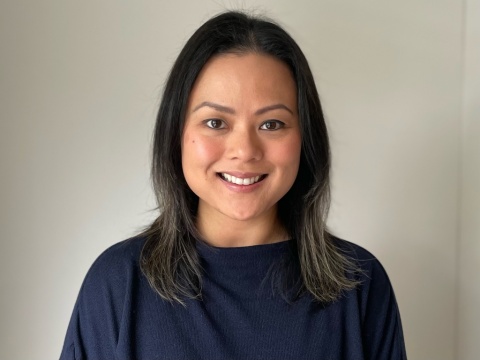
I will never say I am completely healed as I believe my recovery is ongoing. However, it no longer pains me to think about the 14-year-old girl standing on the scale, completely vulnerable and at the mercy of her mother’s words. Instead, I think of my daughter and the next generation.
Trigger warning: This post contains discussion of disordered eating
“But Doctor, is she too fat?”
My mom’s words stung as I stood on the scale, looking to see if those in the waiting room could see the number. I was 14 years old. The purpose of the medical visit was to get treatment for my strep throat. The pain had made eating unbearable. But my mother’s focus was elsewhere.
Some may be shocked to read this; however, for many Asian women who grew up in Canada, this was a constant theme of our childhood, “We are not good enough no matter what we do or say.”
In Asian culture, the pressure for women to be thin is amplified because of our values and beliefs. Our collectivist culture justifies the pressure to be beautiful. The successes and failures of one reflect the successes and failures of one’s family; therefore, external appearances are of critical importance.
The age hierarchy implies that elders can say as they please to those younger. It is completely acceptable for Asian parents to shame their children for their faults because criticism is viewed as helpful and in good faith, serving to maintain the family’s pride. For instance, my parents, aunts, uncles and anyone born before me can call me fat and it is expected that I shall not utter a word of defiance.
So I went on my first diet at 7 years old. I skipped meals, removed food groups from my diet, drank water to fill my belly and forced myself to go to bed hungry. In my teens, I started a part-time job and began buying weight-loss pills. Some left me wired and others destroyed my digestive system. I created outrageous diet rules for myself and began binging and purging whenever I lost control. I hated my body and was desperate to shed the unwanted weight that brought shame to my family.
My immigrant parents were surviving, raising three of us while ensuring food was on the table and the roof stayed above our heads.
In university, I jumped into a committed relationship, hoping that someone would love me and my body unconditionally. After several years, the relationship began to deteriorate. My disordered eating patterns became extreme, using food to soothe the stress of holding onto a failing relationship and abusing exercise to manage the guilt.
At 27, that relationship ended. My ex did not want to marry me. And that became the catalyst for my recovery journey. I realized I didn’t truly know who I was.
How do I want to define myself?
How do I take care of myself, physically, emotionally, mentally and spiritually?
I questioned my values, beliefs and priorities. I reflected on how I was conditioned, how I was raised, and the influences of society, media, and my culture.
I deconditioned the way I viewed my body. Despite having lost a significant part of myself in the relationship, my body remained with me. It was my loyal companion. I needed to stop listening to what everyone else was saying about it and start listening to what it needed. And my body deserved to be treated with kindness, love and compassion.
I stopped viewing food as the enemy but as medicine and fuel for my body. I tuned into my hunger and satiety cues. I became mindful of how my body felt when I wasn’t treating it well. I focused on feeling my emotions instead of numbing them with food or exercise. I let my feelings sweep over me like a wave rolling over a beach, patiently waiting and anticipating them to subside.
It’s been a decade since this moment in my life. My body has gone through two pregnancies, two c-sections and months of breastfeeding. My strong arms serve to lift my children into bed, hug them, and carry the groceries for tonight’s dinner. My powerful legs serve to walk me to school, dance with my husband and climb up the slide to comfort my child.
I will never say I am completely healed as I believe my recovery is ongoing. However, it no longer pains me to think about the 14-year-old girl standing on the scale, completely vulnerable and at the mercy of her mother’s words. Instead, I think of my daughter and the next generation.
To those struggling to love themselves unconditionally, I want you to know that you are not alone. There is no shame in getting help. It is possible to shed the inner voice shaped by those who do not serve you. Give yourself the time and space to heal. You can reclaim the agency you have over your body and define beauty in your own words.
We welcome relevant and respectful comments. Off-topic comments and spam will be removed.